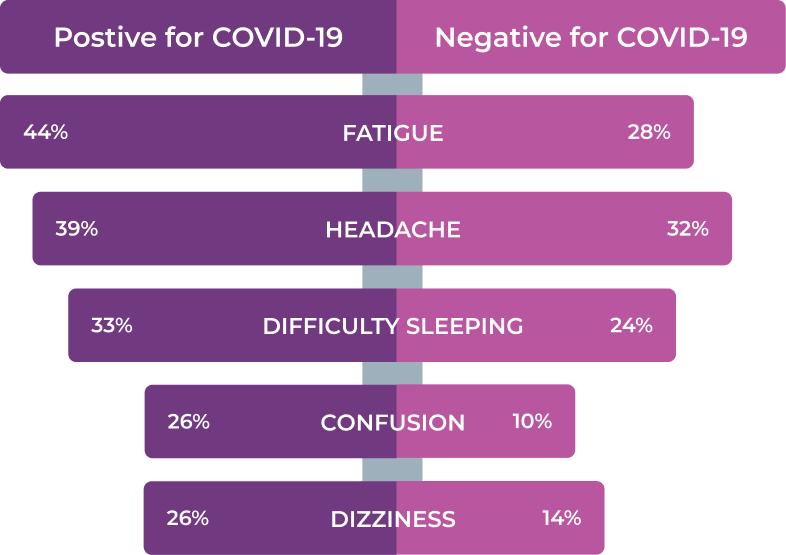Main Menu
AbSPORU provides a wide range of data services for researchers and decision-makers alike. Our innovative approaches to research have made us key data providers in Alberta. Excellent examples of this include a series of studies designed to improve our understanding of Long COVID and the BedMed project, a gamechanger in data collection in primary care.
Our Data and Research Services (DRS) team was key to the collection and linkages of data in Alberta in the Alberta Long COVID study co-lead with Alberta Health (funding partner), Alberta Health Services (AHS), and researchers at the University of Alberta. In one study on Long COVID, we assisted with the recruitment of participants by mailing out 100,000 requests for participation to Albertans who had been tested for COVID-19.
They found that people who were diagnosed with COVID had a higher incidence of symptoms including loss of taste and smell over the long term and a higher risk of various cardiovascular, neurologic, and cardiometabolic complications. Importantly, they found differences in outcomes based on gender and socioeconomic status (e.g. women and people from lower socioeconomic status reported more outcomes). They also found that Indigenous People reported more outcomes than the general population; these are key findings for guiding future service allocation and ensuring that health care services reflect the lived experiences of all Albertans.
The preliminary data from the study is being used within AHS through the Interdisciplinary Program for Long COVID initiative. There are plans to link survey data to the data on Long COVID to elicit information about the efficacy of the primary care clinics among those who attended to see if there is a resolution in symptoms.


They found that people who were diagnosed with COVID had a higher incidence of symptoms including loss of taste and smell over the long term and a higher risk of various cardiovascular, neurologic, and cardiometabolic complications. Importantly, they found differences in outcomes based on gender and socioeconomic status (e.g. women and people from lower socioeconomic status reported more outcomes). They also found that Indigenous People reported more outcomes than the general population; these are key findings for guiding future service allocation and ensuring that health care services reflect the lived experiences of all Albertans.
The preliminary data from the study is being used within AHS through the Interdisciplinary Program for Long COVID initiative. There are plans to link survey data to the data on Long COVID to elicit information about the efficacy of the primary care clinics among those who attended to see if there is a resolution in symptoms.
The infographic below presents some of the results from this study on Long COVID which enables responsive and appropriate decision-making.

AbSPORU is key to the success of Canada’s largest pragmatic trials in primary care. Pragmatic trials are conducted in real-world clinical practice settings with patients and qualified clinicians. AbSPORU offers an e-learning program on pragmatic trials.
Collecting data in primary care can be a challenge. Many other groups mine data from primary care but often do not involve the primary care workforce. AbSPORU has been instrumental in the development of a unique and innovative approach to data collection in primary care. Four pragmatic trials on the timing of blood pressure medication (BedMed, BedMed Frail, OptimizeBP and MinMed) led by Dr. Scott Garrison from the University of Alberta, are showing that data collection across primary care sites and clinics can be cost effective and achievable on a large scale.
We have developed new methods for pragmatic trials in partnership with AbSPORU and we are implementing those designs in four trials. No other jurisdiction has the data steward so intimately involved in coordinating the research. – Dr. Scott Garrison, University of Alberta
BedMed has been in operation since 2017 and is part of the Pragmatic Trials Collaborative ― a group of family physicians who have agreed to participate in participant recruitment and data collection. The intervention is simple: older, frail adults are given their blood medications at bedtime rather than in the morning. BedMed uses the electronic medical records of participating family practices to identify people who were eligible. They are then recruited by the family practices and randomized into morning or bedtime. The team follows the participants using claims data to find out who had a stroke, among other outcomes. We track the outcomes and analyze the data. As of 2023, 430 family physicians and seven nurse practitioners in both rural and urban practices have participated with 3,557 patients randomized across Canada. To date this is the largest pragmatic trial conducted in Canada in primary care.
BedMed Frail also required unique approaches to data collection. Sixteen Albertan continuing care facilities participated in the trial. Physicians and nurse practitioners recruit and gain consent from patients with dementia while AbSPORU identifies participants, randomizes them, and communicates with the long-term care pharmacies to make changes in the timing of the patient’s medication. OptimizeBP, another pragmatic trial involving AbSPORU, is a blood pressure target trial aimed at reducing blood pressure medications with evidence from the regular reporting cycles expected in 2024 or 2025; to date 400 patients have already been randomized. MinMed also aims to reduce or deprescribe medications that are potentially inappropriate. In this trial, family physicians are asked to find the lowest dose of medication that treats symptoms.
Let us know how you want to stay connected


 News + Events
News + Events

 Patient Partner Research Opportunities
Patient Partner Research Opportunities

 I agree to receive occasional emails from AbSPORU.
I agree to receive occasional emails from AbSPORU.© 2025 AbSPORU